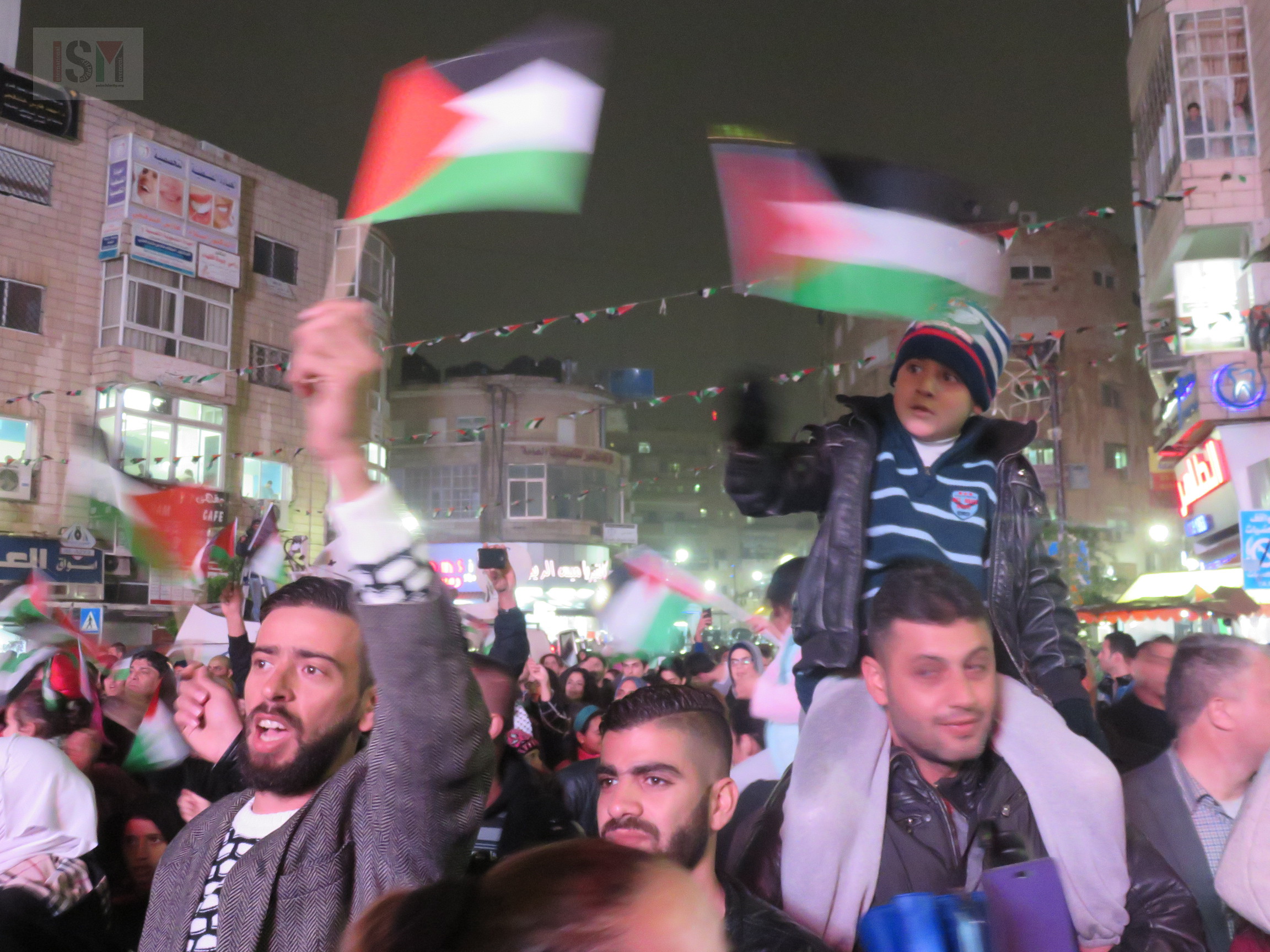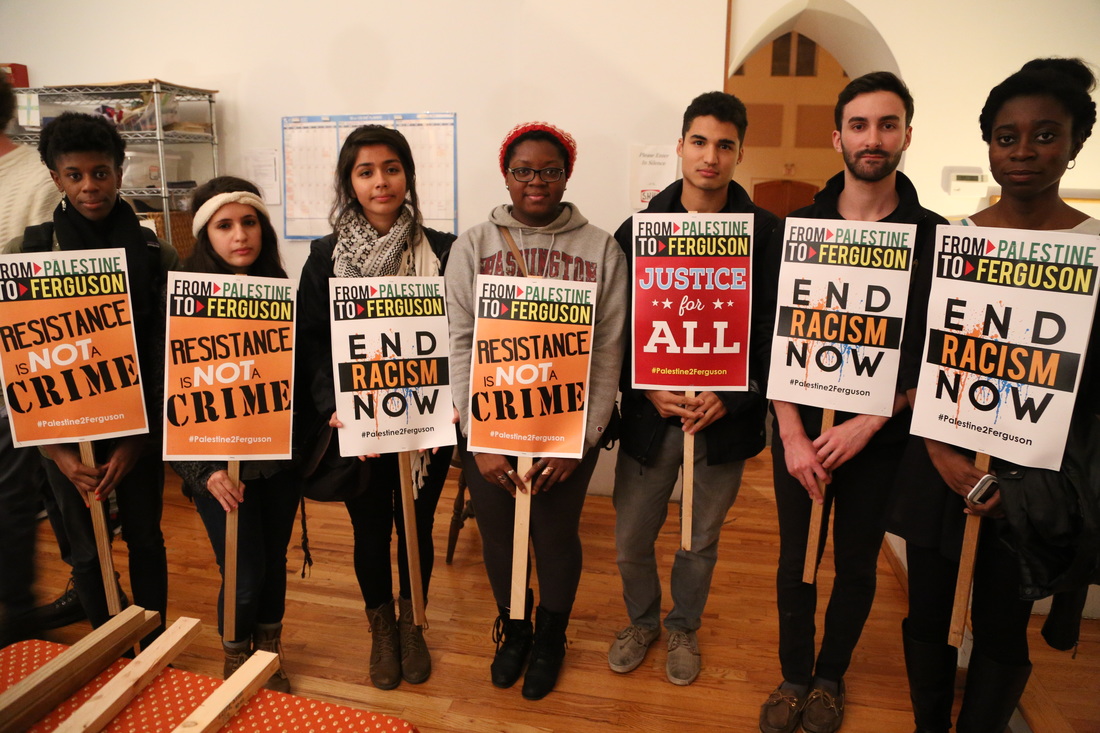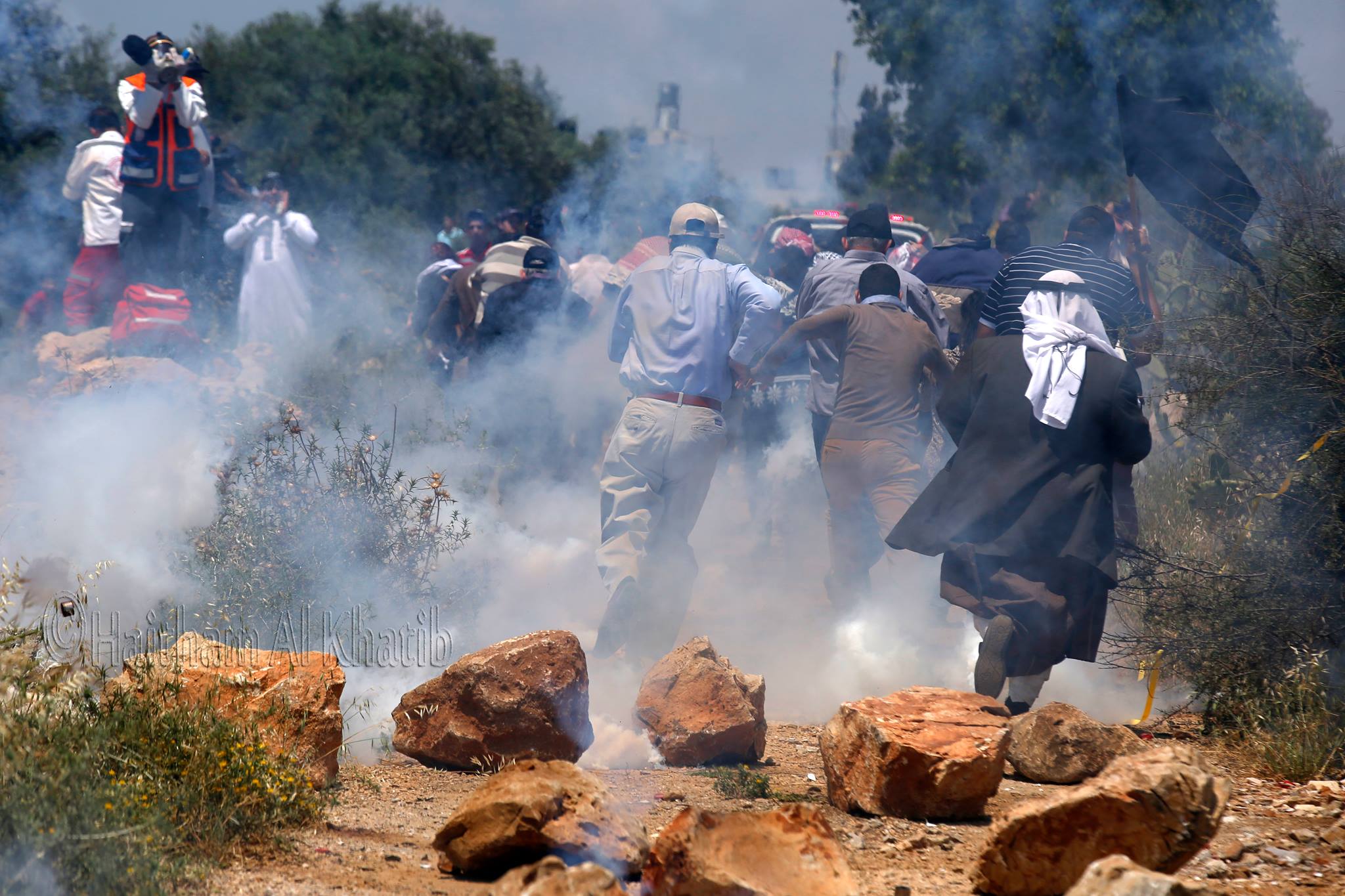Tag: Global Actions
-
“The youth will not tire, ’till your independence”
November 7th, 2015 | International Solidarity Movement, Nablus Team | Nablus, Occupied Palestine Today, at 6 pm local time in Occupied Jerusalem, Palestinians and supporters gathered in peaceful events all over the world to sing the “unofficial” Palestinian national anthem, Mawtini (In Arabic موطني). Events were scheduled to take place in Occupied Jerusalem, Ramallah, Hebron, Nablus, Bethlehem, Jericho,…
-
1,000 Black activists, artists, and scholars demand justice for Palestine
19th August 2015 | Black4Palestine | USA Over 1,000 Black activists, artists, scholars, students, and organizations have launched a statement expressing their solidarity and commitment to ensuring justice for Palestinians. Signatories to the statement span a wide cross-section of Black activists and scholars, including Angela Davis, Boots Riley, Cornel West, dream hampton, Emory Douglas, Mumia Abu-Jamal, Pam…
-
Day of Rage: commemorating Nakba day in Ni’lin
15th May 2015 | International Solidarity Movement, Al Khalil Team | Ni’lin, Occupied Palestine On Friday 15th May 2015, hundreds of Palestinians from all over the West Bank traveled to Ni’lin for a mass protest commemorating the 1948 Nakba (‘catastrophe’). The local villagers were joined by a large amount of other Palestinian protesters, as well as Israeli and international solidarity…



